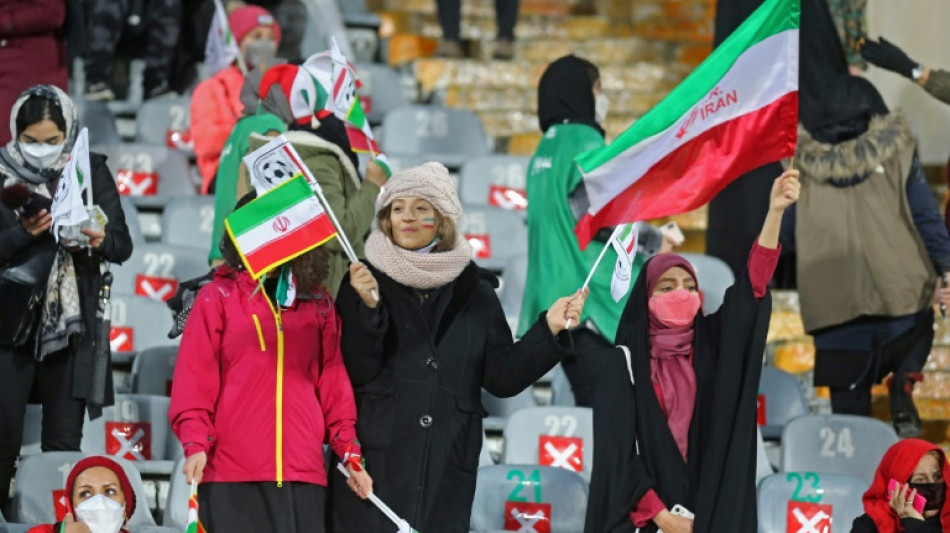
SCS
-0.5800

Iranian women were allowed Thursday for the first time in almost three years to attend a football match of their country's national team in a Tehran stadium.
"I am very happy. This is the first time I have attended a match at the Azadi Stadium," said a 26-year-old civil engineer who gave her name only as Mahya. She carried the national green, white and red flag, and covered her head with a grey scarf.
Ten thousand tickets, of which two thousand were exclusive to women, were available for the 2022 World Cup qualifying match between Iran and Iraq, ISNA news agency reported.
The last time Iranian women were allowed to attend a football match of their national team, after decades of being banned from stadiums, was October 2019. Since then, national team matches were held with no spectators due to Covid-19 restrictions.
"I bought the tickets online and got an SMS confirming it," Mahya said, adding that "if we win, we will go celebrate the victory in the streets."
She added that "there is nothing strange or complicated" about a woman going to the stadium.
"It should have happened earlier but I am very happy and I hope that this will continue," she said.
- 'Blue Girl' -
The female fans, monitored by policewomen, sat behind the Iraqi goal.
"I wished to have my husband beside me but they said men and women are segregated," said another female spectator, Golnaz Bahari, 24.
"It will be a lot better if families can come together," said Bahari, carrying her child and a vuvuzela horn.
The Islamic republic has generally barred female spectators from football and other stadiums for around 40 years. Clerics, who play a major role in decision-making, argue women must be shielded from the masculine atmosphere and sight of semi-clad men.
World football's governing body FIFA ordered Iran in September 2019 to allow women access to stadiums without restriction and in numbers determined by demand for tickets.
A month later they were able to attend the 2022 World Cup qualifying match between Iran and Cambodia in the Azadi Stadium.
The FIFA directive, under threat of Iran's suspension, came after a fan named Sahar Khodayari died after setting herself on fire outside a court in fear of being jailed for trying to attend a match.
Dubbed "Blue Girl" because of the colours of the club she supported -- Esteghlal FC -- she had reportedly been detained in 2018 when she tried to enter a stadium while dressed as a boy.
Her death sparked an outcry, with many calling for Iran to be banned and matches boycotted.
FIFA had been pushing for years for Iran to open its stadiums to women, but Tehran had until 2019 only allowed a limited number of them to attend matches on rare occasions.
W.Zhang--DT